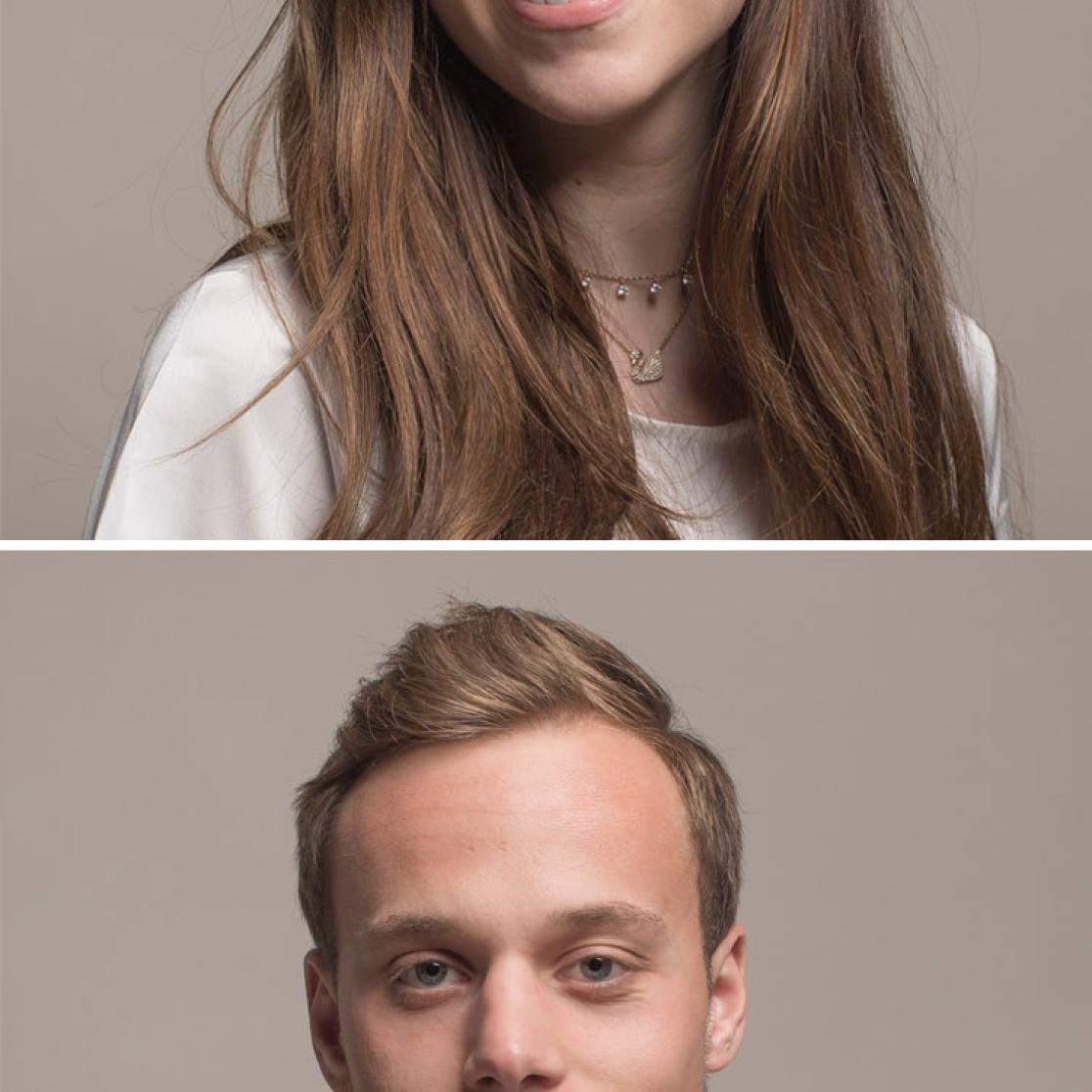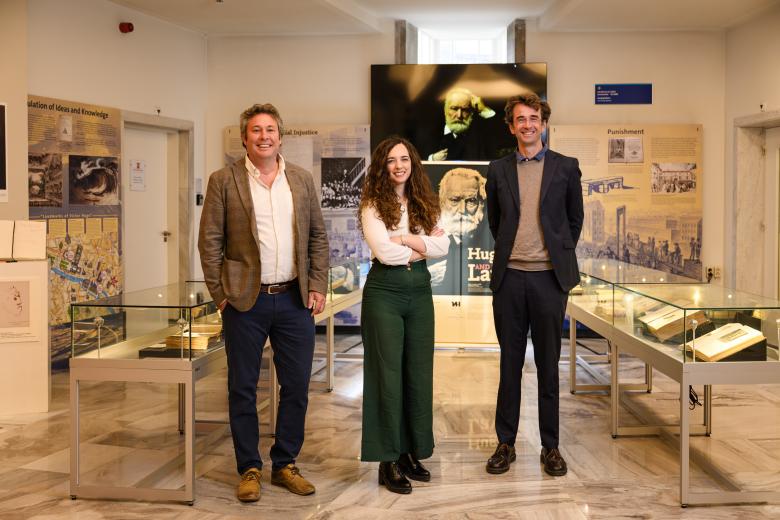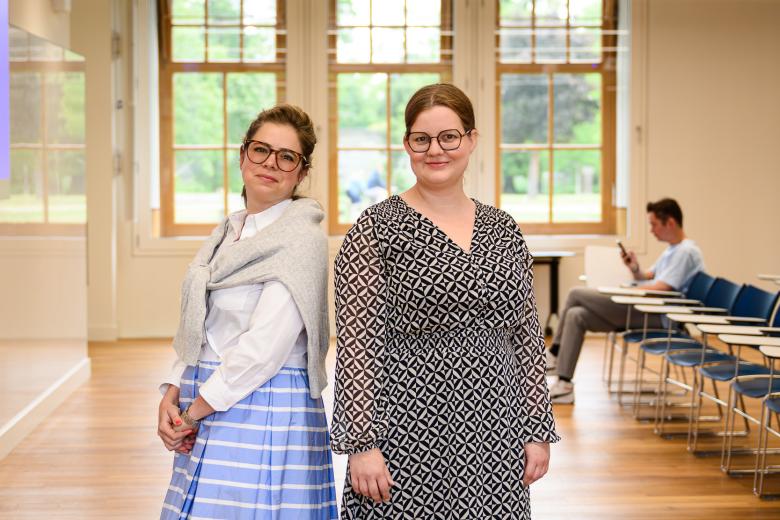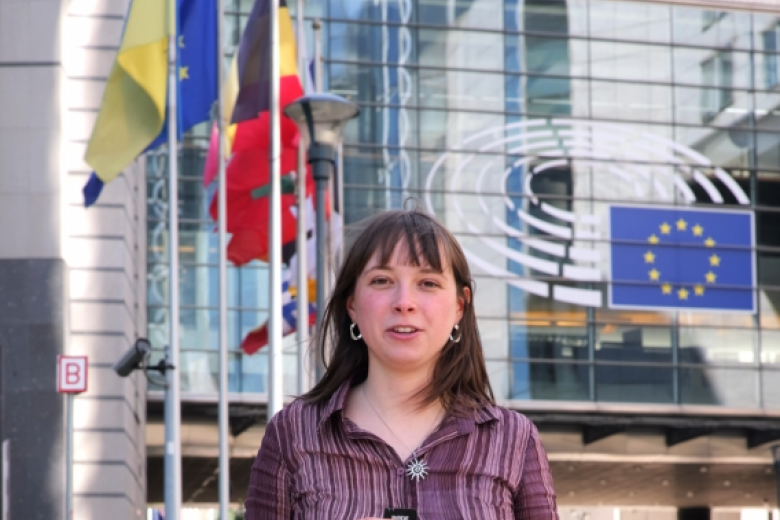Towards a landmine-free world
Massoud and Mahmud Hassani grew up in Kabul, Afghanistan – literally in a minefield. Many years later, in the Netherlands, the brothers have developed Mine Kafon: a drone system for detecting landmines. Having overcome the initial teething troubles and secured the necessary patents, they are now ready to tackle the next challenge: marketing. Students of the master’s programme in International Business are helping the brothers take their business to the next level.
Every year, in former conflict areas and present-day war zones, thousands of people around the world step on hidden landmines. Most are children, and of those at least a quarter don’t survive the blast. This is nothing new for Massoud and Mahmud. Before moving to the Netherlands with their mother they lived in the Afghan capital Kabul – a dangerous area, not least because of unexploded landmines.
Spikes
The memory stayed with the brothers, particularly Massoud, who graduated from the Design Academy Eindhoven in 2012. For his final project, he designed a huge plastic ball with spikes that can detonate landmines by rolling over them. It was meant to be symbolic, intended to draw attention to the global landmine problem. “The response was overwhelming”, recalls Mahmud, who studied communications. “It took off on social media and was picked up by the media. Only then did we get the idea of developing a professional system to detect landmines.”
Maastricht
Their solution: drones that detect mines so that detonation equipment can be directed to the right location. They founded Mine Kafon (which means explosion in Dari) and raised the initial funds through crowdfunding. First based in Eindhoven, they later moved to Maastricht. “We were just one of many innovative companies in Eindhoven, so we figured attracting creative people would be easier in Maastricht”, Massoud explains. “It’s a more international city and we were able to find an affordable business space here. LIOF [the Limburg Development and Investment Company] was willing to support us, and we needed the funding. No matter how great your idea is, no customers, no revenue.”
Drones
Engineers, software specialists and students from the Netherlands, Belgium Canada, China, Germany and Italy are shaping an entirely new generation of drones. “Yes, drones,” Massoud continues, “but it’s mainly about the detection system in the drones. The detectors and sensors can precisely map the location of mines in any given area, so the mines can easily be found and destroyed later. We also have a version that has special ‘arms’ to place detonators on the landmines, so they can be detonated remotely. Safe, efficient and cost-effective. You don’t have to use people, animals or additional equipment.”
Solution
The Mine Kafon team (www.minekafon.org) shuns the limelight. “We first need to perfect the system and get the certifications”, Mahmud explains. “If you want to succeed in this market, everything has to be right. We’re focusing on NGOs and national governments, where it’s difficult to get a foot in the door. And we don’t want to give our competitors any ideas. We do everything ourselves, here in our lab. We make the designs, write the software and build the prototypes using 3D printers. The only thing we buy is the electronics. There are hundreds of drone manufacturers and the demining market is huge. Worldwide, there are an estimated 100 million unexploded mines. We have the solution. According to independent figures, we could clear the world of landmines within ten years.”
Marketing
Their demining system is now ready for large-scale production. The next step is marketing. LIOF, which is also involved in Mine Kafon’s next round of funding, put the brothers in touch with the Maastricht University School of Business and Economics. “International Business, to be specific”, Massoud says. “We participated in a market research project called Value-Based Marketing. Our system is ready and we know it works. But how do we get in touch with potential customers?”
Master
The Value-Based Marketing project is part of the master’s programme in International Business. Companies can submit their marketing questions for lecturers and students to work on. “First there was a day when the participating companies presented themselves at the faculty”, says master’s student Alex Jessen. “Then we visited the companies. Mine Kafon appealed to me immediately; it has an interesting business case and huge social relevance. But it’s also a challenge, as it’s not a conventional market. It’s difficult to get governments and NGOs on board with innovations.”
Decision makers
Roberta Di Palma, another student who chose Mine Kafon, concurs. “That’s why we focused not on potential customers, but on decision makers. Which existing parties would benefit from the added value of Mine Kafon’s systems? It comes down to the innovative detection system. We also identified other markets; for example, the drones are suitable for use in agriculture as well.
Make or break
The students worked in six different groups, each focusing on one particular aspect. “We’re very pleased with the results”, says Mahmud. “Essentially, we received six useful reports. We’re now drawing up a strategy and taking the next step. 2019 will be a make-or-break year for Mine Kafon. This is an excellent example of how universities and industry can work together.”

Alex Jessen and Roberta Di Palma (International Business)
The Value-Based Marketing course is associated with the innovation subsidy programmes LimburgMakers and LimburgLogistiek of the Limburg Development and Investment Company (LIOF). Companies get access to knowledge and support from highly educated students, while students get to develop important labour market skills, improving their employability. The course was offered for the sixth time in 2019, bringing the total number of participating companies to 31.
Also read
-
Where Law Meets Pop Culture: A Creative Space for Exploration
From hip-hop to Victor Hugo, and historical fiction to classic cinema: What do these things have in common with the study of law, you might think? At Maastricht University’s Faculty of Law, a growing group of researchers and students is exploring exactly that and even more.

-
Innovative Education in Personal and Family Law
Thanks to the SURF Incentive Scheme for Open and Online Education (still available at the time), Gwen Noteborn (university lecturer in personal and family law at Maastricht University), Claudia Hocks and Janneke Hendrix (lecturers in law at Zuyd University of Applied Sciences) were able to get...

-
Europe Day
To celebrate Europe Day on 9 May, FASoS student Lisa travelled to Brussels to meet with five of our inspiring alumni who are currently shaping European policy and advocacy. In this video, they share why Europe Day matters, how it’s celebrated in Brussels, and what the idea of Europe means to them.

